Pumpkin »
Pumpkin Seed
How to submit an article:
- Registered users can submit any published journal article that has a unique DOI (Digital Object Identifier) name or link to Research Hub.
- For example, you can paste the full DOI link:
https://doi.org/10.1109/5.771073or just the DOI name:10.1109/5.771073into the field above and click submit. - The person who is first to submit a valid article to Research Hub will forever be credited for it, and every article submission earns you +6 Research Points.
Sub-Topics:
Related Topics
Published research studies are articles that present the findings of original research that has undergone a peer-review process and has been made publicly available in scholarly journals, books or other media.
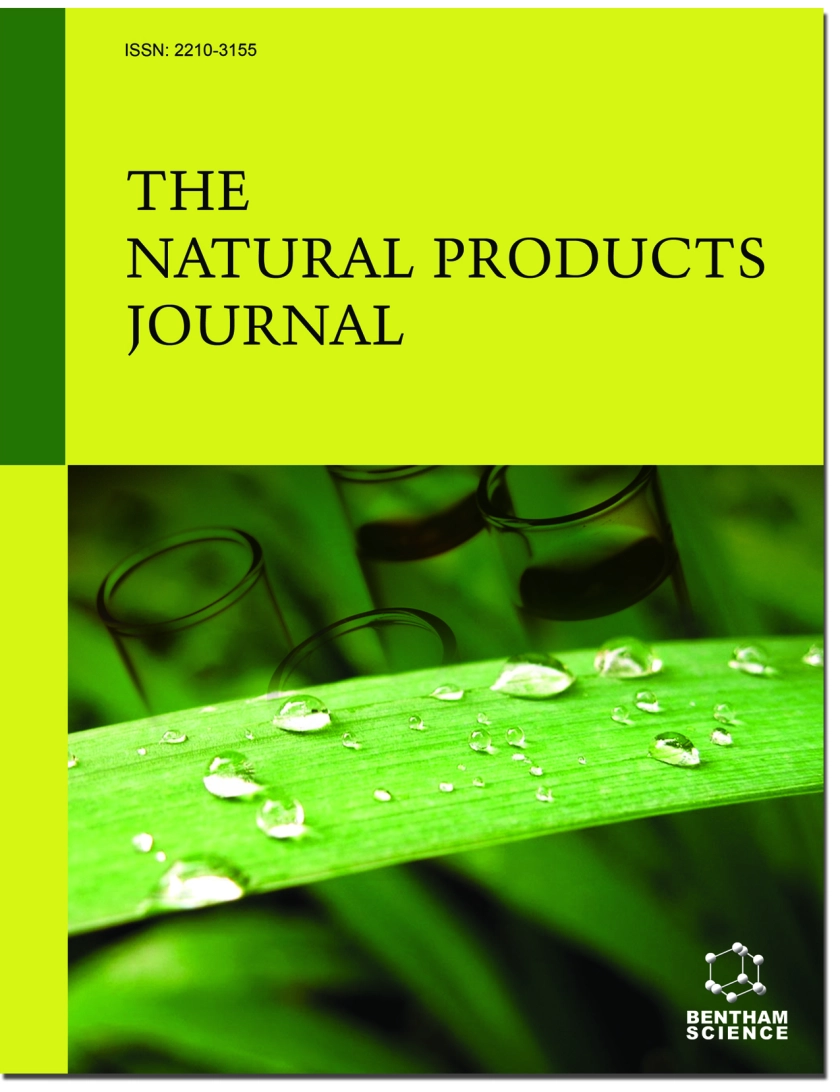
Pumpkin Seeds (Cucurbita spp.) as a Nutraceutical Used In Various Lifestyle Disorders
2024 Feb The Natural Products Journal Wal A, Singh MR, Gupta A, Rathore S, Rout RR, Wal P
Review Article Anticancer Blood Sugar Pumpkin Seed Antioxidant Cardiovascular Disease Depression Anti-ParasitePumpkin seeds are recognised for their medicinal, nutritional, and cosmetic benefits, including anti-diabetic, heart disease prevention, anti-cancer, and antioxidant qualities.
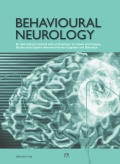
Cucurbita maxima Seeds Reduce Anxiety and Depression and Improve Memory
2023 Mar 22 Behavioural Neurology Wahid S, Alqahtani A, Khan RA
Animal Study Anxiety Depression Memory Pumpkin SeedPumpkin seeds have been shown to provide neuropharmacological benefits such as reducing anxiety and depression, and improving memory.

Evaluation of the Safety and Effectiveness of Nutritional Supplements for Treating Hair Loss
2023 Jan 01 JAMA Dermatology Drake L, Reyes-Hadsall S, Martinez J, Heinrich C, Huang K, Mostaghimi A
Dietary and nutritional interventions, including Viviscal, Nourkrin, Nutrafol, Lamdapil, Pantogar, capsaicin and isoflavone, omegas 3 and 6 with antioxidants, apple nutraceutical, total glucosides of paeony and compound glycyrrhizin tablets, zinc, tocotrienol, pumpkin seed oil, Kimchi and cheonggukjang, vitamin D3, and Forti5, showed varying levels of evidence for potential benefits in improving disease course, with rare and mild adverse effects.
Systematic Review Randomised Controlled Trial Hair Loss Pumpkin Seed Oil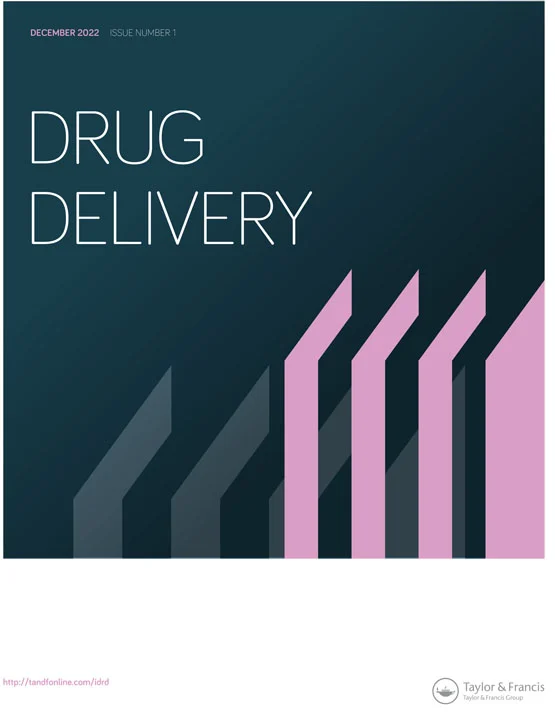
Development and optimization of a tamsulosin nanostructured lipid carrier loaded with saw palmetto oil and pumpkin seed oil for treatment of benign prostatic hyperplasia
2022 Aug 01 Drug Delivery Bakhaidar RB, Hosny KM, Mahier IM, Rizq WY, Safhi AY, Bukhary DM, et al.
The optimized TM-S/P-NLC, with specific characteristics (particle size of 102 nm, entrapment efficiency of 65%, and steady-state flux of 4.5 μg/cm2.min), demonstrated improved stability (95%) and released TM more effectively (81%) than TM-NLCs without S/P oil or TM aqueous suspension. The pharmacokinetic profile of TM in TM-S/P-NLC was improved, and in vivo studies showed favorable results in terms of prostate weight and prostate index, suggesting the potential of TM-S/P-NLC as a novel drug delivery system for BPH.
Experimental Study Pumpkin Seed Oil Benign Prostatic Hyperplasia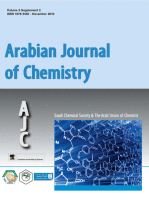
Chemical composition of pumpkin (Cucurbita maxima) seeds and its supplemental effect on Indian women with metabolic syndrome
2022 Aug Arabian Journal of Chemistry Jane Monica S, John S, Madhanagopal R, Sivaraj C, Khusro A, Arumugam P, et al.
Randomised Controlled Trial Metabolic Syndrome Blood Sugar Pumpkin SeedPumpkin seed supplementation can significantly reduce fasting blood glucose levels in Indian women suffering from metabolic syndrome.
Research insights are moderated by the Research Hub team and offer an at-a-glance overview of interesting research findings.

2024 The Natural Products Journal
Pumpkin seeds are recognised for their medicinal, nutritional, and cosmetic benefits, including anti-diabetic, heart disease prevention, anti-cancer, and antioxidant qualities.
Review Article Anti-Parasite Anticancer Antioxidant Blood Sugar Cardiovascular Disease
Pumpkin Seeds (Cucurbita spp.) as a Nutraceutical Used In Various Lifestyle
Disorders
Wal A, Singh MR, Gupta A, Rathore S, Rout RR, Wal P

2023 Behavioural Neurology
Pumpkin seeds have been shown to provide neuropharmacological benefits such as reducing anxiety and depression, and improving memory.
Animal Study Anxiety Depression Memory
Cucurbita maxima Seeds Reduce Anxiety and Depression and Improve Memory
Wahid S, Alqahtani A, Khan RA

2022 Arabian Journal of Chemistry
Pumpkin seed supplementation can significantly reduce fasting blood glucose levels in Indian women suffering from metabolic syndrome.
Randomised Controlled Trial Blood Sugar Metabolic Syndrome
Chemical composition of pumpkin (Cucurbita maxima) seeds and its supplemental effect on Indian women with metabolic syndrome
Jane Monica S, John S, Madhanagopal R, Sivaraj C, Khusro A, Arumugam P, et al.
2022 Comprehensive Reviews in Food Science and Food Safety
Pumpkin seed oil, with its phytochemical content, shows beneficial properties against cardiovascular problems in menopausal women and hormone imbalances.
Review Article Cardiovascular Disease Menopause
The potential of pumpkin seed oil as a functional food—A comprehensive review of chemical composition, health benefits, and safety
Šamec D, Loizzo MR, Gortzi O, Çankaya T, Tundis R, Suntar , et al.
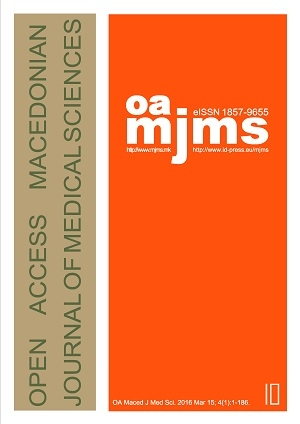
2022 Open Access Macedonian Journal of Medical Sciences
Pumpkin seeds, in combination with other plants, show potential as an alternative treatment method for diabetes mellitus.
Systematic Review Type 2 Diabetes
Pumpkin Seed Intervention to Control Diabetes Mellitus: A Systematic Review
Tasya Z, Amiruddin R, Syam A, Thamrin Y
Review Articles
Review articles summarise and critically evaluate the current state of research on a specific topic or field by synthesising multiple primary research studies.

Pumpkin Seeds (Cucurbita spp.) as a Nutraceutical Used In Various Lifestyle Disorders
2024 Feb The Natural Products Journal Wal A, Singh MR, Gupta A, Rathore S, Rout RR, Wal P
Review Article Anticancer Blood Sugar Pumpkin Seed Antioxidant Cardiovascular Disease Depression Anti-ParasitePumpkin seeds are recognised for their medicinal, nutritional, and cosmetic benefits, including anti-diabetic, heart disease prevention, anti-cancer, and antioxidant qualities.

Evaluation of the Safety and Effectiveness of Nutritional Supplements for Treating Hair Loss
2023 Jan 01 JAMA Dermatology Drake L, Reyes-Hadsall S, Martinez J, Heinrich C, Huang K, Mostaghimi A
Dietary and nutritional interventions, including Viviscal, Nourkrin, Nutrafol, Lamdapil, Pantogar, capsaicin and isoflavone, omegas 3 and 6 with antioxidants, apple nutraceutical, total glucosides of paeony and compound glycyrrhizin tablets, zinc, tocotrienol, pumpkin seed oil, Kimchi and cheonggukjang, vitamin D3, and Forti5, showed varying levels of evidence for potential benefits in improving disease course, with rare and mild adverse effects.
Systematic Review Randomised Controlled Trial Hair Loss Pumpkin Seed OilThe potential of pumpkin seed oil as a functional food—A comprehensive review of chemical composition, health benefits, and safety
2022 Jul 29 Comprehensive Reviews in Food Science and Food Safety Šamec D, Loizzo MR, Gortzi O, Çankaya T, Tundis R, Suntar , et al.
Review Article Cardiovascular Disease Menopause Pumpkin SeedPumpkin seed oil, with its phytochemical content, shows beneficial properties against cardiovascular problems in menopausal women and hormone imbalances.

Pumpkin Seed Intervention to Control Diabetes Mellitus: A Systematic Review
2022 Jun 12 Open Access Macedonian Journal of Medical Sciences Tasya Z, Amiruddin R, Syam A, Thamrin Y
Systematic Review Pumpkin Seed Type 2 DiabetesPumpkin seeds, in combination with other plants, show potential as an alternative treatment method for diabetes mellitus.

The potential of pumpkin seeds as a functional food ingredient: A review
2020 Nov Scientific African Dotto JM, Chacha JS
Review Article Anti-Parasite Pumpkin Seed Depression Antioxidant AnticancerPumpkin seeds carry bioactive compounds with antidiabetic, antidepressant, antioxidant, antitumor, and cytoprotective activities, also aiding in microbiological infections and specific organ disorders.
Clinical Trials
Clinical trials are research studies that involve people and are conducted to evaluate the safety and efficacy of new treatments or interventions, such as drugs, medical devices, or behavioural therapies.

Evaluation of the Safety and Effectiveness of Nutritional Supplements for Treating Hair Loss
2023 Jan 01 JAMA Dermatology Drake L, Reyes-Hadsall S, Martinez J, Heinrich C, Huang K, Mostaghimi A
Dietary and nutritional interventions, including Viviscal, Nourkrin, Nutrafol, Lamdapil, Pantogar, capsaicin and isoflavone, omegas 3 and 6 with antioxidants, apple nutraceutical, total glucosides of paeony and compound glycyrrhizin tablets, zinc, tocotrienol, pumpkin seed oil, Kimchi and cheonggukjang, vitamin D3, and Forti5, showed varying levels of evidence for potential benefits in improving disease course, with rare and mild adverse effects.
Systematic Review Randomised Controlled Trial Hair Loss Pumpkin Seed Oil
Chemical composition of pumpkin (Cucurbita maxima) seeds and its supplemental effect on Indian women with metabolic syndrome
2022 Aug Arabian Journal of Chemistry Jane Monica S, John S, Madhanagopal R, Sivaraj C, Khusro A, Arumugam P, et al.
Randomised Controlled Trial Metabolic Syndrome Blood Sugar Pumpkin SeedPumpkin seed supplementation can significantly reduce fasting blood glucose levels in Indian women suffering from metabolic syndrome.
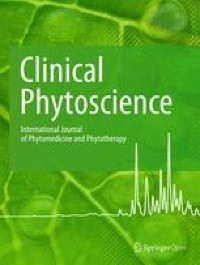
Beneficial effects of pumpkin seed soft extract on lower urinary tract symptoms and quality of life in men with benign prostatic hyperplasia: a meta-analysis of two randomized, placebo-controlled trials over 12 months
2022 Apr 13 Clinical Phytoscience Vahlensieck W, Heim S, Patz B, Sahin K
Meta-Analysis Randomised Controlled Trial Pumpkin Seed Benign Prostatic HyperplasiaPumpkin seed extract treatment could potentially offer symptomatic relief for patients experiencing moderate lower urinary tract symptoms suggestive of benign prostate hyperplasia.
Pumpkin seed oil (Cucurbita pepo) versus tamsulosin for benign prostatic hyperplasia symptom relief: a single-blind randomized clinical trial
2021 Oct 19 BMC Urology Zerafatjou N, Amirzargar M, Biglarkhani M, Shobeirian F, Zoghi G
Randomised Controlled Trial Benign Prostatic Hyperplasia Pumpkin Seed TamsulosinPumpkin seed oil can alleviate symptoms of benign prostatic hyperplasia with no side effects, though not as efficiently as tamsulosin.
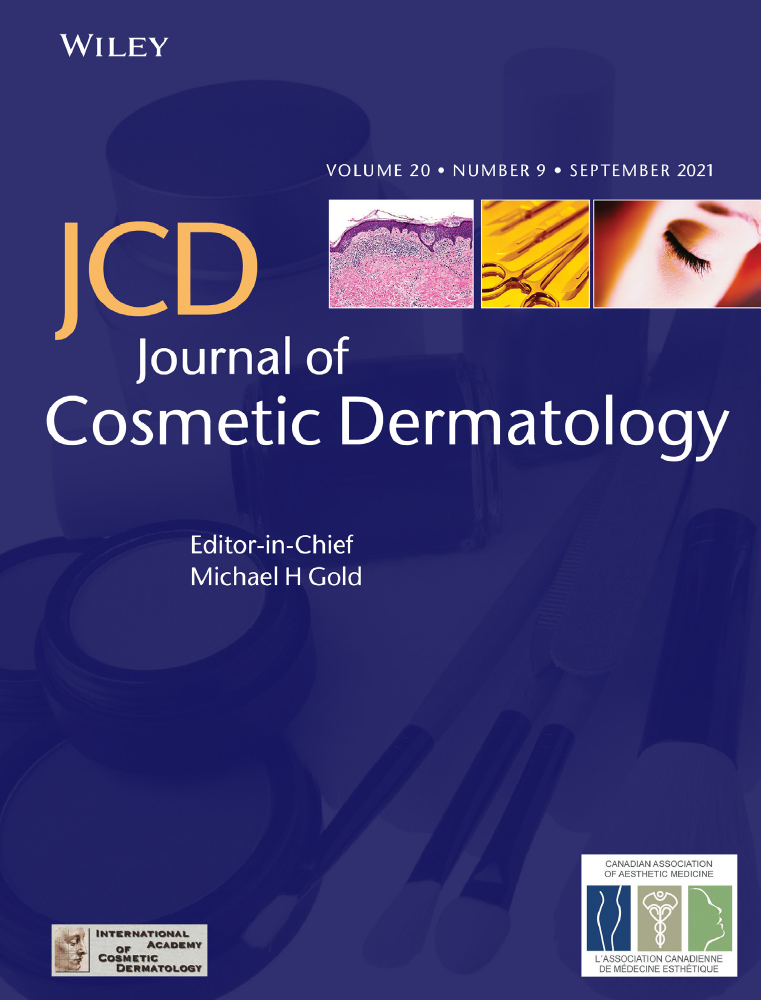
Pumpkin seed oil vs. minoxidil 5% topical foam for the treatment of female pattern hair loss: A randomized comparative trial
2021 Feb 12 Journal of Cosmetic Dermatology Ibrahim IM, Hasan MS, Elsabaa KI, Elsaie ML
Randomised Controlled Trial Pumpkin Seed Female Pattern Hair LossPumpkin seed oil shows promising potential in treating female pattern hair loss, with results comparable to the effects of minoxidil 5% foam.
Study Protocols
Published study protocols are detailed plans that outline the objectives, methodology, statistical analyses, and organisation of a research study that have been made publicly available for others to review and use as a reference.
Presentation Slides

Review Article
Pumpkin seeds are recognised for their medicinal, nutritional, and cosmetic benefits, including anti-diabetic, heart disease prevention, anti-cancer, and antioxidant qualities.
Wal A, Singh MR, Gupta A, Rathore S, Rout RR, Wal P

Animal Study
Pumpkin seeds have been shown to provide neuropharmacological benefits such as reducing anxiety and depression, and improving memory.
Wahid S, Alqahtani A, Khan RA

Randomised Controlled Trial
Pumpkin seed supplementation can significantly reduce fasting blood glucose levels in Indian women suffering from metabolic syndrome.
Jane Monica S, John S, Madhanagopal R, Sivaraj C, Khusro A, Arumugam P, Gajdács M, Esther Lydia D, Umar Khayam Sahibzada M, Alghamdi S, Almehmadi M, Emran TB

Review Article
Pumpkin seed oil, with its phytochemical content, shows beneficial properties against cardiovascular problems in menopausal women and hormone imbalances.
Šamec D, Loizzo MR, Gortzi O, Çankaya T, Tundis R, Suntar , Shirooie S, Zengin G, Devkota HP, Reboredo‐Rodríguez P, Hassan STS, Manayi A, Kashani HRK, Nabavi SM

Systematic Review
Pumpkin seeds, in combination with other plants, show potential as an alternative treatment method for diabetes mellitus.
Tasya Z, Amiruddin R, Syam A, Thamrin Y

Meta-Analysis
Pumpkin seed extract treatment could potentially offer symptomatic relief for patients experiencing moderate lower urinary tract symptoms suggestive of benign prostate hyperplasia.
Vahlensieck W, Heim S, Patz B, Sahin K
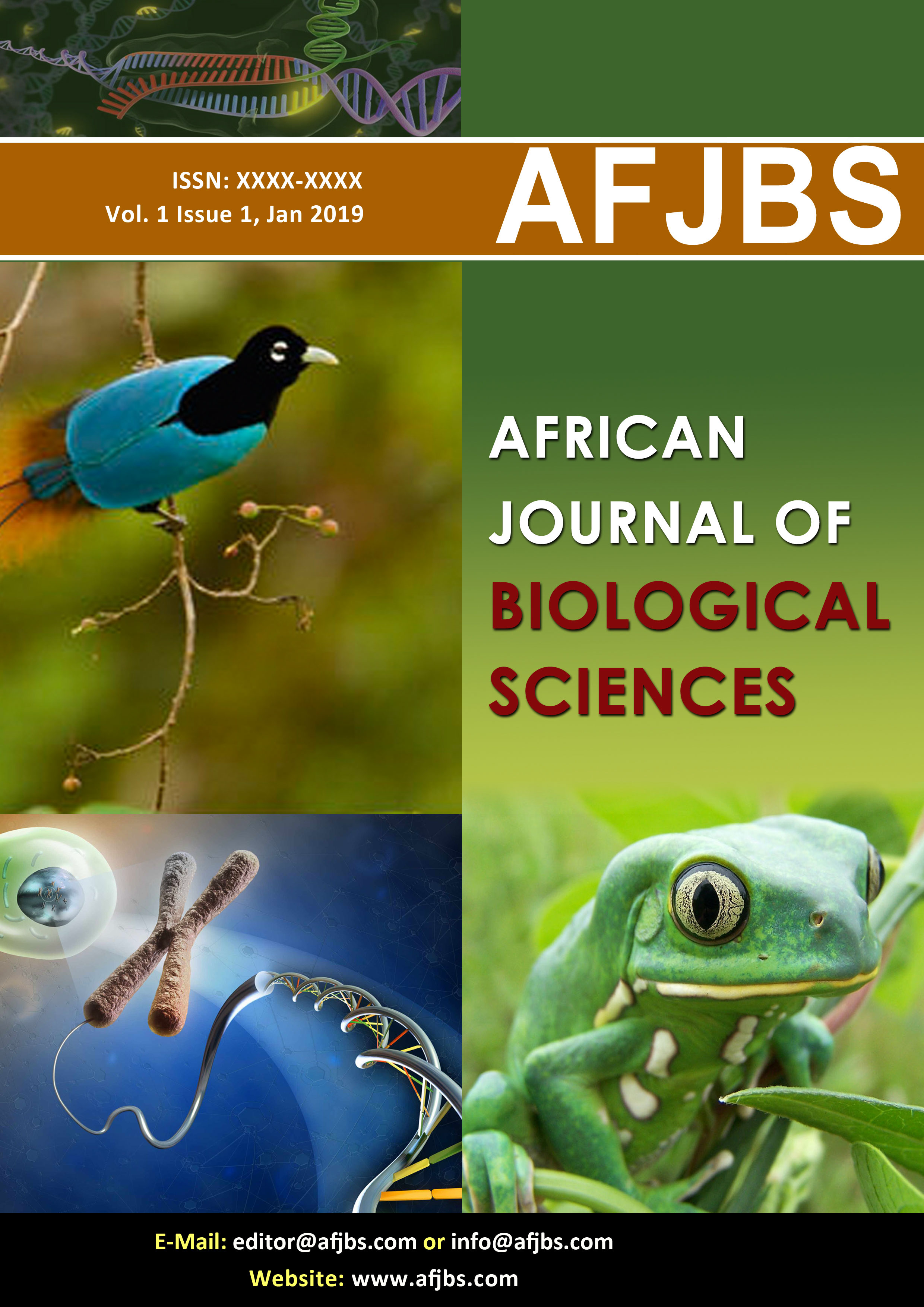
Clinical Study
Consumption of pumpkin seeds enhances the nutritional status and improves the attention deficit of deaf female children exhibiting ADHD symptoms.
Ataya H

Randomised Controlled Trial
Pumpkin seed oil can alleviate symptoms of benign prostatic hyperplasia with no side effects, though not as efficiently as tamsulosin.
Zerafatjou N, Amirzargar M, Biglarkhani M, Shobeirian F, Zoghi G
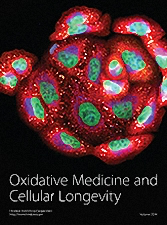
Animal Study
Pumpkin extract exhibits potential antidepressant effects similar to fluoxetine and ameliorates biochemical and structural changes in rat brains resulting from chronic stress.
Ayuob N, Shaker SA, Hawuit E, Al-Abbas N, Shaer NA, Al Jaouni S, Mahdi MR

Randomised Controlled Trial
Pumpkin seed oil shows promising potential in treating female pattern hair loss, with results comparable to the effects of minoxidil 5% foam.
Ibrahim IM, Hasan MS, Elsabaa KI, Elsaie ML

Review Article
Pumpkin seeds carry bioactive compounds with antidiabetic, antidepressant, antioxidant, antitumor, and cytoprotective activities, also aiding in microbiological infections and specific organ disorders.
Dotto JM, Chacha JS

Experimental Study
Extract of pumpkin seeds displays estrogenic properties, potentially offering a solution to alleviate symptoms of menopausal syndromes resulting from estrogen deficiency.
Lestari B, Walidah Z, Utomo RY, Murwanti R, Meiyanto E
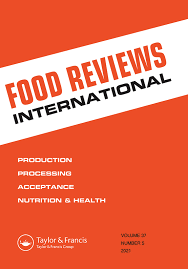
Review Article
Pumpkin seed oil appears effective for improving men's health conditions such as enlarged prostate, overactive bladder, and hair loss due to its anti-inflammatory properties and radical scavenging.
Ramak P, Mahboubi M
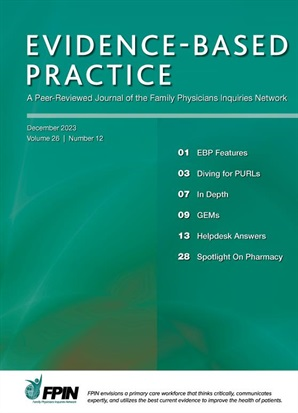
Randomised Controlled Trial
Pumpkin seed oil and pumpkin seeds can effectively reduce obstructive urinary symptoms in patients dealing with symptomatic benign prostatic hypertrophy, performing as well as saw palmetto and prazosin.
Edwards R, Shadiack A
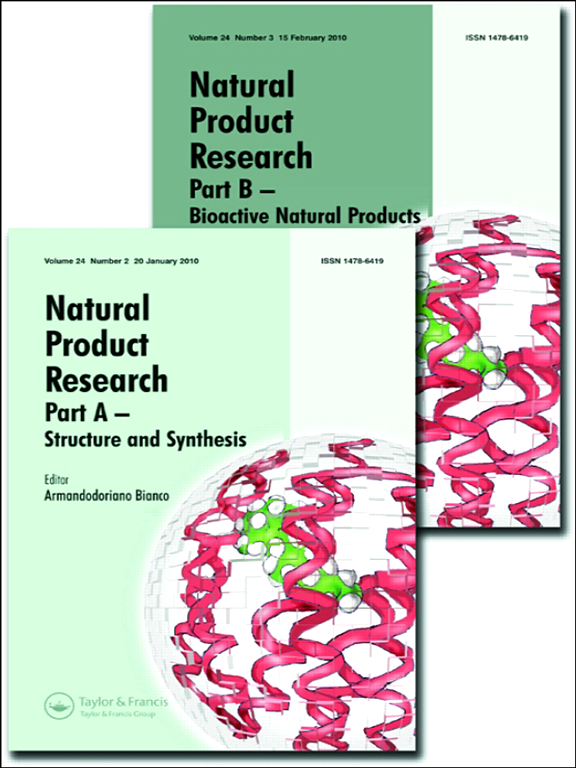
Experimental Study
Pumpkin seeds have a higher total phenolic compound content, but phenolic compounds from amaranth grains show stronger antiradical properties.
Peiretti PG, Meineri G, Gai F, Longato E, Amarowicz R
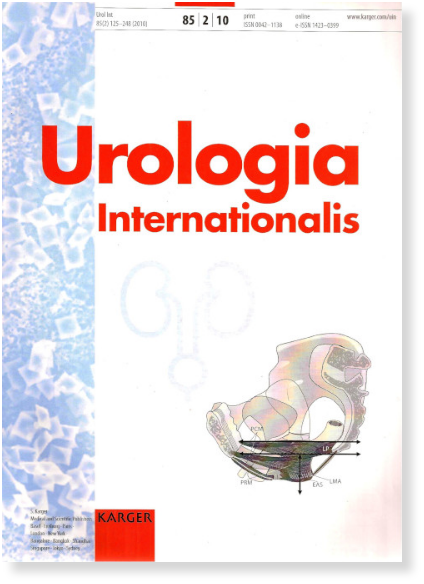
Randomised Controlled Trial
Pumpkin seed treatment can potentially cause a significant reduction in symptoms of benign prostatic hyperplasia in men aged 50 to 80.
Vahlensieck W, Theurer C, Pfitzer E, Patz B, Banik N, Engelmann U

Experimental Study
Pumpkin seeds and their extracts, including Trigonelline, Nicotinic acid, and D-chiro-inositol, offer potential for controlling blood sugar levels in diabetes patients.
Adams GG, Imran S, Wang S, Mohammad A, Kok MS, Gray DA, Channell GA, Harding SE
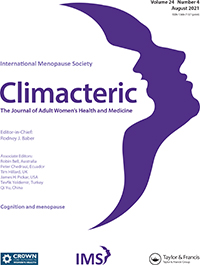
Randomised Controlled Trial
Pumpkin seed oil supplementation may increase good cholesterol levels, lower diastolic blood pressure, and alleviate menopausal symptoms in postmenopausal women.
Gossell-Williams M, Hyde C, Hunter T, Simms-Stewart D, Fletcher H, McGrowder D, Walters CA
Executive Summary
Write an executive summary in the form of a blog article on the topic of "Research into Chinese medicine treatment for Pumpkin Seed" summarising the research below and using language that can be easily understood by patients and avoiding medical jargon using a professional and caring tone of voice.
Write an executive summary in the form of a blog article on the topic of "Researched Chinese medicine treatments for Pumpkin Seed" summarising the research below in an objective and easy to understand way, and using language that can be easily understood by patients. Group the article into Chinese medicine treatments first, followed by nutrition and other treatments. Avoid using medical jargon and use a professional and caring tone of voice.
Write me a concise but easy to understand executive summary on the topic of "Chinese medicine treatments for Pumpkin Seed" based on the following research that I will give you. Your summary should be 2 paragraphs long in Australian English spelling and include references to the studies.
A Review Article published in 2024 in the journal The Natural Products Journal found that Pumpkin seeds are recognised for their medicinal, nutritional, and cosmetic benefits, including anti-diabetic, heart disease prevention, anti-cancer, and antioxidant qualities. The review article undertakes a comprehensive exploration of the nutraceutical importance of pumpkin seeds. The methodology includes an examination of the various known substances in the seeds, such as phytoestrogens, unsaturated fatty acids, and vitamin E. The study then delves into the different benefits and therapeutic uses of these components stretching from medicinal to nutritional to cosmetic applications. The results of this research are diverse and impressive, with implications for several major health sectors. Their potential anti-diabetic and hypoglycemic properties could suggest a significant role in the management and prevention of diabetes. Meanwhile, the seeds' potential in cardiovascular disease prevention could help to address one of the most pressing global health issues. Moreover, potential anti-cancer properties imply that these seeds could even have a part to play in cancer prevention. The review also described potential additional qualities, such as antidepressant, anti-helminthic (parasite-removing), and antioxidant effects.
A Animal Study published in 2023 in the journal Behavioural Neurology found that Pumpkin seeds have been shown to provide neuropharmacological benefits such as reducing anxiety and depression, and improving memory. The study evaluated the effects of pumpkin seeds on four areas - anxiety, depression, memory, and motor coordination. Anxiety was tested using models like light and dark apparatus, elevated plus maze, head dip, and open field test, while depression was assessed by the forced swim test and tail suspension test. Memory and learning abilities were gauged through the passive avoidance test, stationary rod apparatus, and Morris's water maze test. The effect on motor skilled learning was assessed by stationary rod and rotarod apparatus. Finally, the levels of brain biogenic amines were determined using reversed phase high-pressure liquid chromatography. In the results evaluation, it was found that pumpkin seeds exhibit properties that help reduce anxiety and alleviate depression, while also enhancing memory. However, they showed no significant effects on motor coordination. An elevated level of norepinephrine was observed, possibly contributing to its antidepressant effects. Furthermore, a reduction in the weight of the animal was observed after chronic administration. These benefits are probably due to the seeds' secondary metabolites like cucurbitacin, beta-sitosterol, polyphenolic compounds, citrulline, kaempferol, arginine, beta-carotene, quercetin, and other antioxidants.
A Randomised Controlled Trial published in 2022 in the journal Arabian Journal of Chemistry found that Pumpkin seed supplementation can significantly reduce fasting blood glucose levels in Indian women suffering from metabolic syndrome. The researchers initially assessed the antioxidant activities of pumpkin seed extract using standard in vitro methods. There was also an investigation into the antidiabetic effects of the seed extract by conducting alpha-amylase, alpha-glucosidase, and dipeptidyl peptidase IV inhibition effects tests as well as a glucose uptake assay using 3T3-L1 cell lines. Identification of fatty acids and various plant compounds in the seed extract was accomplished with gas chromatography-mass spectrometry. Indian women aged between 30-50 years who had metabolic syndrome were then recruited, divided into two groups: intervention and control. The women in the intervention group received 5g of pumpkin seeds for 60 days while both groups followed certain dietary guidelines throughout the study period. The results demonstrate that the pumpkin seeds had sharp reducing power and acted as scavengers of DPPH and ABTS free radicals. They also inhibited certain enzymes and notably, improved glucose uptake by a significant percentage. Gas chromatography-mass spectrometry further identified the presence of certain compounds within the seed extract. Comparing the changes between the intervention and control groups showed a significant reduction of fasting plasma glucose in the intervention group after 60-day supplementation with pumpkin seeds, thus suggesting its beneficial effect on metabolic syndrome.
A Review Article published in 2022 in the journal Comprehensive Reviews in Food Science and Food Safety found that Pumpkin seed oil, with its phytochemical content, shows beneficial properties against cardiovascular problems in menopausal women and hormone imbalances. The study focused on gathering scientific information that highlights the potential of pumpkin seed oil as a health-benefiting food ingredient. Its focus is on the oil’s chemical composition, phytochemical content, biological activity, safety measures alongside the various production processes. The researchers examined major phytochemicals found in the oil, including polyphenols, phytoestrogens, and fatty acids, while also noting the potential health benefits of carotenoids, squalene, tocopherols, and minerals present in it. In terms of methodology, most studies within this review were conducted in vitro to validate the oil's antioxidant and antimicrobial activities. Furthermore, there were clinical studies undertaken specifically to observe the effect of the oil in addressing cardiovascular challenges in menopausal women and conditions related to sex hormone imbalances. The comprehensive overview covers a wide array of data on the composition and potential uses of pumpkin seed oil.
A Systematic Review published in 2022 in the journal Open Access Macedonian Journal of Medical Sciences found that Pumpkin seeds, in combination with other plants, show potential as an alternative treatment method for diabetes mellitus. Using a comprehensive review of literature, the study identified the interventions and impacts of incorporating pumpkin seeds in the treatment of diabetes mellitus. A series of experiments on lab animals were performed where the consumption of pumpkin seeds was combined with other plant supplements. The objective of these experiments was to observe any potential hypoglycemic activity that could then be utilised in controlling diabetes. The results derived from these experiments showed that pumpkin seeds present significant advantages in promoting and maintaining health, particularly in relation to diabetes mellitus. The evidence suggests that the unique combination of pumpkin seeds with other plant substances resulted in hypoglycemic activity. This finding posits pumpkin seeds as a viable option for complementary therapy in treating individuals with diabetes mellitus, by providing a more natural alternative to conventional drugs.
A Meta-Analysis published in 2022 in the journal Clinical Phytoscience found that Pumpkin seed extract treatment could potentially offer symptomatic relief for patients experiencing moderate lower urinary tract symptoms suggestive of benign prostate hyperplasia. The study methodology involved a meta-analysis of two separate studies that were randomized and placebo-controlled, focusing on the effectiveness of pumpkin seed extract in addressing urinary tract symptoms indicative of benign prostate hyperplasia. The participants included in these studies were those patients whose International Prostate Symptom Score was 13 points or higher at the baseline. The method of analysis involved assessing the response rates of patients and the improvement in prostate symptom scores at a 12-month follow-up. The discussion of results revealed that the response rates in the group receiving pumpkin seed extract were marginally higher than that of the placebo group, giving pumpkin seed extract a slight edge. Additionally, there was a minor difference observed in the change from the baseline to 12-month Prostate Symptom Score in favour of pumpkin seed extract. The meta-analysis in general indicates that a treatment involving pumpkin seed extract may result in symptomatic relief for patients suffering from moderate urinary tract symptoms associated with benign prostate hyperplasia.
A Clinical Study published in 2021 in the journal African Journal of Biological Sciences found that Consumption of pumpkin seeds enhances the nutritional status and improves the attention deficit of deaf female children exhibiting ADHD symptoms. This study investigated 40 deaf female children, aged between 10 and 12 years, who exhibited symptoms of attention-deficit hyperactivity disorder (ADHD). These children were selected from El Amal school for the deaf and divided into two groups; control and experimental. Various data were gathered on personal and socio-economic factors, food habits, diet history, and clinical signs, along with performing the Attention Deficit Disorder Connected with Hyperactivity for Deaf Children test. The experimental group underwent a dietary intervention, consuming 50g of magnesium and iron-rich pumpkin seeds daily over three months. The results indicated an improvement in both iron and magnesium levels within the experimental group following the dietary intervention. Notably, compared to the control group, the levels of magnesium and iron were significantly higher in the experimental group after introducing pumpkin seeds into their diet. Furthermore, on evaluating the ADHD symptoms via the Attention Deficit Disorder Connected with Hyperactivity for Deaf Children test, the experimental group showed a more substantial improvement after dietary intervention than the control group. Over time, the findings demonstrated the potential beneficial effects of consuming pumpkin seeds on the nutritional status and ADHD symptoms in the studied population.
A Randomised Controlled Trial published in 2021 in the journal BMC Urology found that Pumpkin seed oil can alleviate symptoms of benign prostatic hyperplasia with no side effects, though not as efficiently as tamsulosin. In this single-blind randomized clinical trial, patients aged 50 years or above suffering from benign prostatic hyperplasia were included. These patients were divided into two groups, with one group being administered tamsulosin nightly and the other receiving pumpkin seed oil twice a day. Variables such as age, weight, height and body mass index of the patients were taken into account. The international prostate symptom score was noted for each patient at the start, then after one and three months into the treatment. Other factors recorded include the quality of life associated with BPH, prostate-specific antigen serum, prostate and postvoid residual volume and maximum urine flow. Information regarding any drug side effects was also recorded. Following a comparison of the two groups, it was observed that there was no significant difference in principal variables at any point during the trial. However, both groups saw a notable reduction in the international prostate symptom score and an improvement in quality of life. The decrease was comparatively more significant in the tamsulosin group after one and three months. Patients administered pumpkin seed oil experienced no side effects, unlike those in the tamsulosin group who experienced dizziness, headaches, retrograde ejaculation and erythema with pruritus.
A Animal Study published in 2021 in the journal Oxidative Medicine and Cellular Longevity found that Pumpkin extract exhibits potential antidepressant effects similar to fluoxetine and ameliorates biochemical and structural changes in rat brains resulting from chronic stress. The researchers used forty male albino rats, split into four different groups: a negative control group, a chronic unpredictable mild stress (CUMS) group, a fluoxetine-treated group, and a pumpkin-treated group. These rats were exposed to CUMS for 28 days, with the treatments applied during the last 14 days of this exposure period. After these 28 days, the scientists evaluated the behavioral, biochemical, and histopathological alterations in these rats. The application of pumpkin extract significantly reduced markers of stress and inflammation, while increasing antioxidant levels. Additionally, the extract helped reduce structural damage in the hippocampal region of the brain caused by exposure to CUMS. These effects were comparable to those observed by administering fluoxetine, a conventional antidepressant.
A Randomised Controlled Trial published in 2021 in the journal Journal of Cosmetic Dermatology found that Pumpkin seed oil shows promising potential in treating female pattern hair loss, with results comparable to the effects of minoxidil 5% foam. The study conducted involved a random assignment of patients with female pattern hair loss to either apply pumpkin seed oil or minoxidil 5% foam for three months. Assessments of these patients were carried out clinically and dermoscopically at the start of the trial, halfway through, and at the end. The group allocated pumpkin seed oil (group A) demonstrated a notable decrease in hair shaft diversity from before and after the treatment, as well as a decrease in vellus hairs (non-pigmented, fine hairs). There was also a significant increase in upright regrowing hairs after treatment. For the group assigned to the minoxidil foam (group B), there was also a similar significant decrease in hair shaft diversity and vellus hair numbers from before to after treatment. This suggests that both pumpkin seed oil and minoxidil 5% foam have beneficial effects in treating female pattern hair loss.
A Review Article published in 2020 in the journal Scientific African found that Pumpkin seeds carry bioactive compounds with antidiabetic, antidepressant, antioxidant, antitumor, and cytoprotective activities, also aiding in microbiological infections and specific organ disorders. The methodology utilised an in-depth literature review, compiling evidence-based data from various electronic databases such as ScienceDirect, ResearchGate, PubMed, Scopus and Google Scholar up until January 2020. The focus of the gathered literature was the potential use of pumpkin seeds as a functional food ingredient and assessing the associated biological mechanisms of the bioactive compounds within the seeds. Pumpkin seeds, despite being small, are rich in a wide variety of beneficial nutrients such as amino acids, phytosterols, unsaturated fatty acids, phenolic compounds, tocopherols, cucurbitacins and valuable minerals. The bioactive compounds found within these seeds have shown multiple promising activities. They possess anthelmintic, antidiabetic, antidepressant, antioxidant, antitumor and cytoprotective properties. Additionally, they demonstrate potentials for addressing microbiological infections and specific disorders related to liver and prostate. The compiled literature strongly suggests that pumpkin seeds can be used as both a traditional and functional food ingredient due to the wide array of health benefits they offer.
A Experimental Study published in 2019 in the journal Phytotherapy Research found that Extract of pumpkin seeds displays estrogenic properties, potentially offering a solution to alleviate symptoms of menopausal syndromes resulting from estrogen deficiency. In the study, scientists conduct in vitro analysis using a colorimetric-based assay on kidney cells derived from Chinese hamsters. Furthermore, they perform in vivo experiments involving 7-week old female rats that were specially prepared to model menopausal conditions. These rats are split into differing groups, each receiving a different dosage of pumpkin seed extract. Other observable parameters include uterine weight, condition of mammary glands, serum lipid levels, and bone density measured after a period of 30 days. The researchers also utilize a computer-based technique called molecular docking to investigate how certain active compounds in the pumpkin seed extract respond to estrogen receptors. Separately, this study indicates the pumpkin seed extract's positive impact on uterine weight and mammary gland health in rats, demonstrating properties similar to the hormone 17β-estradiol. Additionally, consumption of the extract led to improved lipid profile - with increased levels of good cholesterol and decreased bad cholesterol- and improved bone density. The study suggests that these beneficial results align with the growth of bone-building cells and decrease in bone-resorbing cells. The digital validation confirms the strength of interactions between active compounds found in the extract and the estrogen receptors.
A Review Article published in 2018 in the journal Food Reviews International found that Pumpkin seed oil appears effective for improving men's health conditions such as enlarged prostate, overactive bladder, and hair loss due to its anti-inflammatory properties and radical scavenging. The study methodology entailed the review of various clinical trials that examined the impacts of pumpkin seed oil on different health conditions common in men. These conditions included Benign Prostatic Hyperplasia (a non-cancerous enlargement of the prostate gland), overactive bladder, and androgenic alopecia (a hair loss condition). The decision to focus on these conditions was based on the potential therapeutic value of the biochemical components of the oil, such as its rich contents of essential, highly unsaturated fatty acids and phytosterols. In discussing the results, it was observed that the beneficial effects of pumpkin seed oil in treating the examined health conditions are potentially linked to the oil's contents of phytoestrogens and unsaturated fatty acids. It was suggested that these compounds may inhibit the enzyme 5-alpha reductase, which is an important factor in the enlargement of the prostate and hair loss. Additionally, the oil's anti-inflammatory properties and its capacity to scavenge free radicals might contribute to its therapeutic advantages. Furthermore, it is postulated that the oil may also have a relaxation effect on the bladder sphincter, thereby aiding patients with urination difficulties.
A Randomised Controlled Trial published in 2018 in the journal Evidence-Based Practice found that Pumpkin seed oil and pumpkin seeds can effectively reduce obstructive urinary symptoms in patients dealing with symptomatic benign prostatic hypertrophy, performing as well as saw palmetto and prazosin. In the methodology of this research, the scientists observed and compared the effects of pumpkin seed oil, pumpkin seeds, pumpkin seed extract, saw palmetto and prazosin on patients suffering from symptomatic benign prostatic hypertrophy. The main purpose of the experiment was to determine which substances could alleviate obstructive urinary symptoms to the greatest extent. Effects of these substances were noted on a consistent basis to accurately gauge their efficacy. In the discussion of results, it was found that both pumpkin seed oil and pumpkin seeds exhibited a notable reduction in obstructive urinary symptoms among the patients. Pumpkin seed extract was observed to not perform better than placebo, implying it didn't contribute significantly to symptom relief. Interestingly, pumpkin seed oil was found to be on par with saw palmetto and prazosin in terms of alleviating BPH-related symptoms. This discovery positions pumpkin seed oil and pumpkin seeds as potential natural solutions for addressing urinary symptoms linked to benign prostatic hypertrophy.
A Experimental Study published in 2017 in the journal Natural Product Research found that Pumpkin seeds have a higher total phenolic compound content, but phenolic compounds from amaranth grains show stronger antiradical properties. The researchers extracted phenolic compounds from pumpkin seeds and amaranth grains using an 80% methanol solution. They then characterised these extracts by their total phenolic compound contents, antioxidant capacities, antioxidant power, and their antiradical activity against a given radical. The individual phenolic compounds were identified with a method known as high-performance liquid chromatography with diode-array detection. They found that pumpkin seeds had a higher total phenolic compound content than amaranth grains. However, phenolic compounds from amaranth grains demonstrated a stronger ability to neutralize the radical they were testing against. They also found several peaks on the chromatograms of two extracts, indicative of different compounds and their concentrations. Vanillic acid derivatives were confirmed in the amaranth grains, while in the pumpkin seeds, they identified three main phenolic compounds based on their ultraviolet diode-array detection spectra.
A Randomised Controlled Trial published in 2014 in the journal Urologia Internationalis found that Pumpkin seed treatment can potentially cause a significant reduction in symptoms of benign prostatic hyperplasia in men aged 50 to 80. In the GRANU study, 1,431 men aged 50-80 years, exhibiting symptoms of benign prostatic hyperplasia, were assigned randomly to one of three groups: those receiving pumpkin seeds, capsules filled with pumpkin seed extract, and a placebo group. The primary criterion for response was measured by a reduction in the International Prostate Symptom Score (IPSS) after 12 months. The secondary outcomes were focused around the quality of life in relation to the IPSS, individual items on the IPSS and diary-recorded nocturia. After a year, there was no statistical difference observed between the group taking pumpkin seed extract and the placebo group. However, the group treated with pumpkin seed showed a significant descriptive difference when compared with the placebo group. The treatment was well tolerated overall and showed a clinically relevant reduction in the IPSS among the men with benign prostatic hyperplasia who were treated with pumpkin seed for 12 months.
A Experimental Study published in 2014 in the journal Critical Reviews in Food Science and Nutrition found that Pumpkin seeds and their extracts, including Trigonelline, Nicotinic acid, and D-chiro-inositol, offer potential for controlling blood sugar levels in diabetes patients. The study investigated the hypoglycemic properties of pumpkins, specifically focusing on the seeds. A variety of biologically active ingredients found in pumpkins were analyzed, these include polysaccharides, para-aminobenzoic acid, fixed oils, sterols, proteins, and peptides, with an emphasis on the macromolecules such as Trigonelline, Nicotinic acid, and D-chiro-inositol. A key aspect of the methodology was examining the role these chemicals play in maintaining glycemic control, by investigating the effects of fruit pulp, ungerminated seed oil, and protein from germinated seeds. In the discussion of results, the study indicated that chemicals within pumpkins do have hypoglycemic properties, suggesting the potential use of pumpkins, particularly their seeds, in controlling or managing blood sugar levels in diabetes patients. Specific macromolecules within the seeds, Trigonelline, Nicotinic acid, and D-chiro-inositol, also suggested hypoglycemic properties. These results underline the potential that pumpkin and its biologically active ingredients could offer an innovative approach to dealing with diabetes mellitus.
A Randomised Controlled Trial published in 2011 in the journal Climacteric found that Pumpkin seed oil supplementation may increase good cholesterol levels, lower diastolic blood pressure, and alleviate menopausal symptoms in postmenopausal women. In this pilot study employing a randomized, double-blinded and placebo-controlled design, 35 women that were either naturally menopausal or had prematurely entered menopause due to benign surgical intervention partook. Over the span of 12 weeks, participants received either pumpkin seed oil or wheat germ oil (serving as the placebo) at a dosage of 2 grams daily. Measurements of serum lipids, fasting plasma glucose, blood pressure and completion of a questionnaire regarding menopausal symptoms were taken before and after the supplementation period, and changes across these factors were evaluated. Following supplementation, women who received pumpkin seed oil displayed increased concentrations of high density lipoprotein cholesterol (commonly known as good cholesterol) and a reduction in diastolic blood pressure. Additionally, there was a notable decline in the severity of menopausal symptoms, including hot flushes, headaches, and joint pain, thanks to this supplementation. Contrarily, symptoms of depression and feelings of being unloved heightened among women in the group that received wheat germ oil.
Moderation Tools
Topic
Sign In
Users not signed in are limited to viewing the 5 most recent items of content.